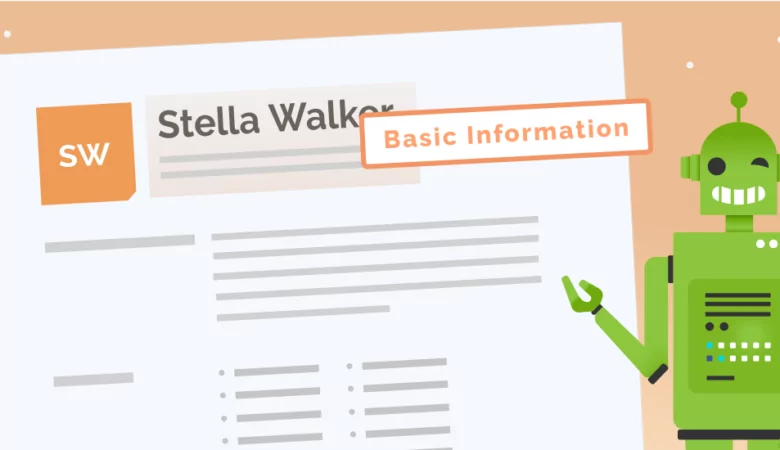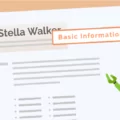If you want to excel in the workforce, you need specific skills to get you through the door. Here’s a list of five professional skills to add to your resume.

5 Professional Skills You Need for Your Resume
Professional Skills
In your job search, you will come across various job postings that require specific skill sets needed to perform your job efficiently. By crafting your resume accordingly, you might find yourself landing a chance at a job interview. Every good resume needs a concise professional skills section. Let’s take a look at some necessary job skills to add to your next resume.

Hard Skills vs. Soft Skills: What’s the Difference?
Hard skills are classified as job-related skills that all employees need to perform their roles as effectively as possible. These are arguably the most important skills to add to your resume. They can describe your work experience and say a lot about your overall competencies in one short list. Here’s a quick list of applicable hard skills you can add to your resume:
- Project management skills
- Social media management
- Time management
- Data analysis
- Familiarity with specific software or equipment (such as Microsoft Office, Zoom, etc.)
Soft skills will tell hiring managers more about your work ethic and how well you would fit into the work environment. These skills don’t necessarily rely on previous work experience, though you can discuss how these skills boosted productivity or rallied team members together to get a project done.
Here are some examples of soft skills:
- Teamwork
- People skills
- Emotional intelligence
- Problem-solving/decision-making
- Adaptability
- Leadership skills
- Critical thinking
- Creativity
In order to grab a hiring manager’s attention, you need a balance of hard and soft skills to add to your resume. The perfect candidate for any role not only needs to be capable of performing the tasks asked of them, but also to get along well with the rest of the existing team, too.
Top 5 Types of Skills To Add to Your Resume
There are plenty of skill sets out there that can enhance your resume. When you need to narrow down your list, however, try adding these five key skills to your resume.
-
Technical skills
Knowing how to operate software, equipment, or tools related to the role is a skill you should possess first and foremost. No hiring manager will want to hire a person who can’t do the work required, no matter how personable you are. Tailor your resume skill section to reflect what the job posting requires; for example, if the job requires proficiency in Excel and you have this skill, include it in your resume.
-
Interpersonal skills
Communication skills within the workplace are extremely valuable. In fact, this is perhaps the most essential skill that isn’t a hard skill. Concisely conveying your ideas and being able to actively participate within the workplace can help you stand out from your team members. Candidates with especially strong communication skills typically hold leadership roles since they are more adept at motivating team members.
-
Teamwork skills
Most jobs will require you to work within a team setting. Working well with others is critical to maintaining a steady flow of productivity. A lack of cooperation or communication will only slow down everyone else, so it’s important to know how to get along with others — even people you might not like that much.
-
Organizational skills
Staying organized in a hectic work environment is a great skill to have. There are several different types of organizational skills that can prove useful. For instance, time management can help you manage others’ schedules or ensure the team is meeting deadlines.
Creating a comprehensive filing system is also a good organizational skill to have. Your team will be able to work more efficiently if everything is in its designated place.
-
Problem-solving skills
Being able to think on your feet when the situation calls for it is always a good trait to have. Adaptability and resourcefulness are all great soft skills that can help you overcome issues with unruly customers, coworkers, or blockages in projects that you need to see through. When discussing this skill in a cover letter or during a job interview, bring up specific examples of times when you had to bring your problem-solving skills to bear on a work-related issue.
FAQs: Professional Skills
Pick out skills listed in the job description, match them with your own, and feature them so that you can present yourself as the best fit for the role. The job listing will often list a few skills that the ideal candidate will need, so you’ll want to include those on your resume if you can.
Writing down a list of all your applicable skills to the job position can definitely help. That way, you can pick and choose the most relevant skills to the role for your next personalized resume.
Your job application isn’t complete without a good cover letter. The cover letter gives job seekers the chance to talk about their transferable skills outside the job interview. Writing one can also set you apart from other candidates as well. Oftentimes, the cover letter is listed as optional, but you should always take the time to write one anyway.
If you’re still having trouble formatting the skills section of your resume, look no further than a resume builder tool. With dozens of templates and examples to use, you can easily create the best resume for your next job search in mere minutes.








